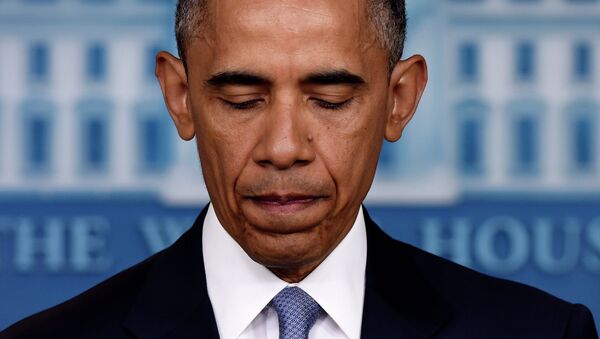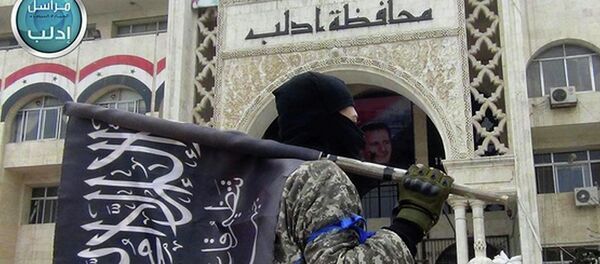"The Islamic State (IS) is gaining an ever stronger foothold that straddles both Iraq and Syria, and is expanding into other countries like Libya and Saudi Arabia; civil wars in Syria and Yemen have exacted a catastrophic humanitarian toll; and peace between Israel and Palestine is as elusive as ever," China's state-run news agency narrated.
According to Xinhua, "Obama should blame the political mess on no one but his crippled and cost-conscious Middle East policy."
The Middle East is collapsing under the failed policies of Barack Hussein Obama.
— Dagwood Bumstead (@Daggy1) 28 Март 2015
True, Americans do not want US soldiers to return to Iraq after their years-long engagement resulted in the deaths of nearly 4,500 US servicemen. However, the country's leadership contemplated this option and voices calling for US boots on the ground are strong.
Advocates of an increased US presence in Iraq point to the fact that local security forces have been unable to offer effective resistance to IS militants. Keep in mind that they were trained by the US and they vastly outnumber the Islamic radicals. Still, in May, Islamic State seized Ramadi after the Iraqi army abandoned the city located some 80 miles from Baghdad without a fight.
Iraq has long been divided along sectarian lines. This rift has deepened dramatically following the US invasion of the country in 2003.
For instance, Iraq's army has been reformed "by marginalizing and dismissing a large number of elite Sunni Muslim officers," Xinhua pointed out. Shia soldiers were "understandably reluctant and unenthusiastic to defend" Ramadi, a city populated mostly by Sunnis.
According to the news agency, "Obama's Middle East strategy is doomed to fail" because the US president is "an opportunist," who "flinches and flip-flops" when it comes to decision-making.
"Whoever is going to succeed the Obama administration needs to know that the United State should not continue to scale back its involvement in the tumultuous Middle East at a time when he or she ought to do more to clear a mess of America's own making," the media outlet opined.
It's clear that Obama's failed Middle East Policy helped create the JV ISIS group. He's like an ostrich with his head in the sand.
— PolitixGal (@PolitixGal) 18 мая 2015






